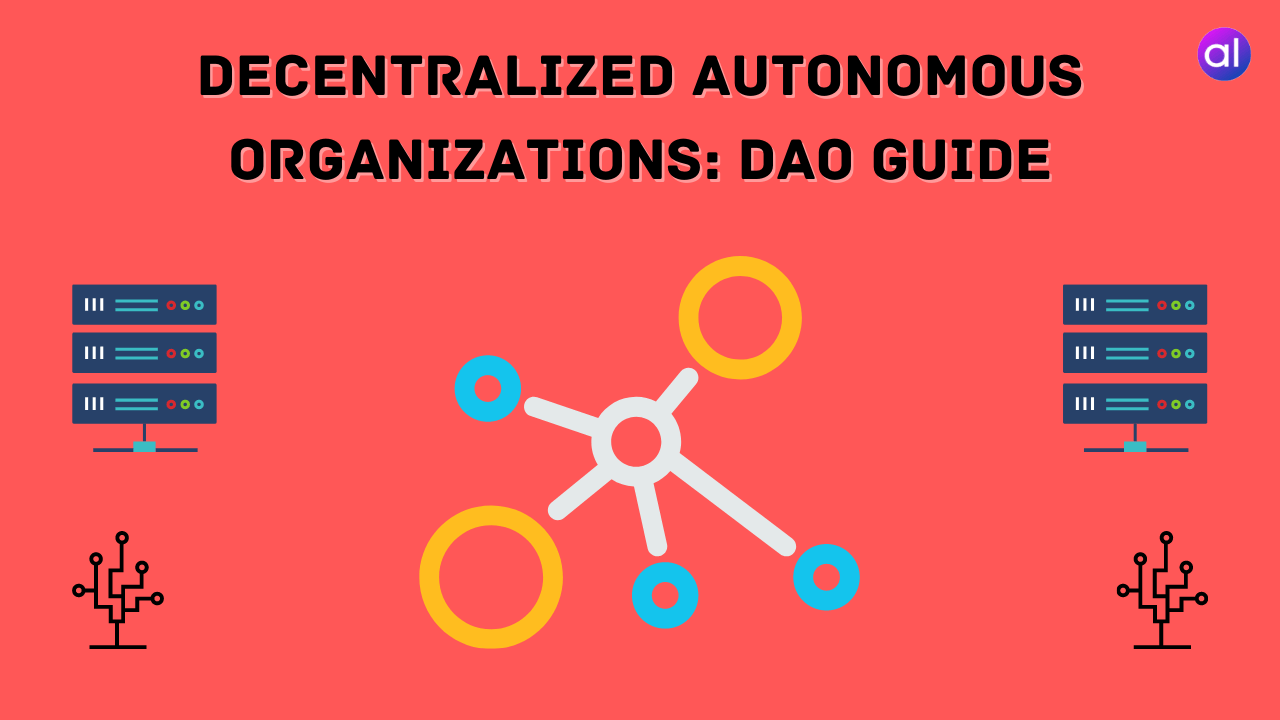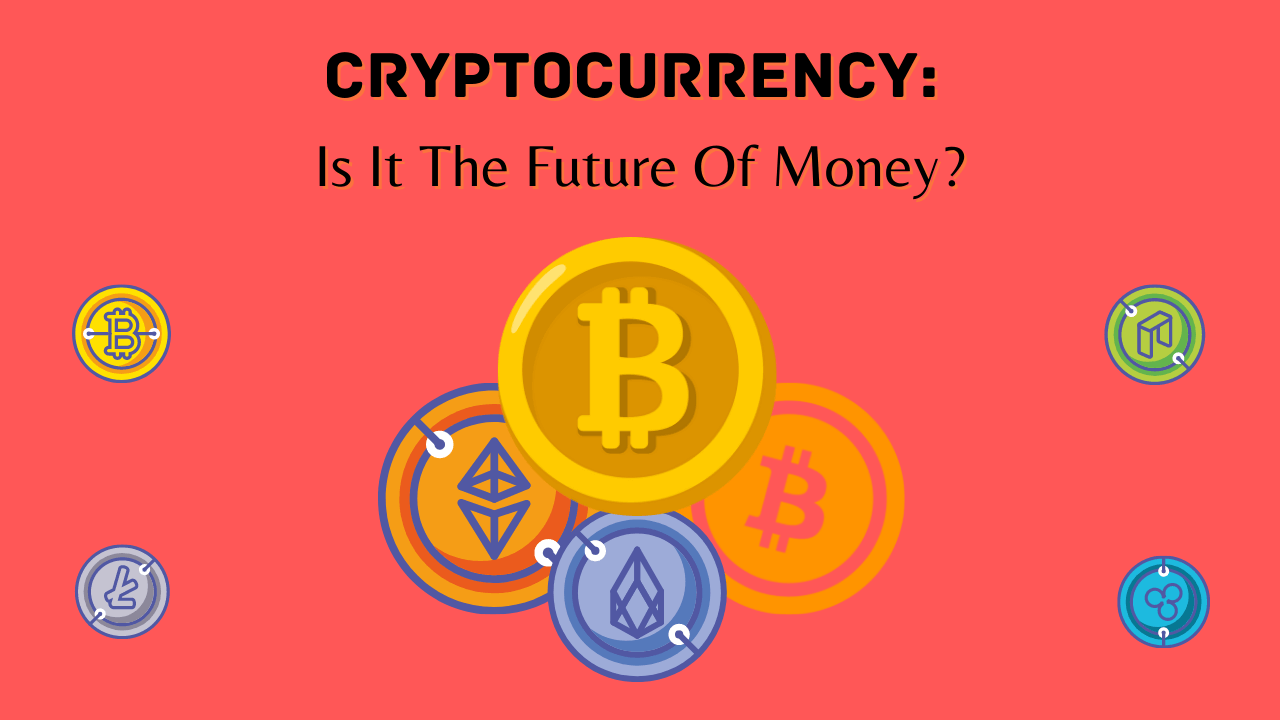In this article, we are going to explore what is DAO and the applications of Decentralized Autonomous Organizations (DAO) in the Future.
What if businesses could run on the same technology that powers cryptocurrencies? This concept may sound far-fetched to you, but it’s actually not so crazy, as certain technologies are rapidly improving upon this premise in the form of decentralized autonomous organizations, or DAOs.
If you’ve heard the term decentralized autonomous organization before, but aren’t sure what it means, you’re not alone. But this innovative business model may soon be making a splash in the startup world.
The first decentralized autonomous organization was formed in early 2014 and has already raised $1 million in investment capital from several venture capitalists.
Related Article: Top 16 Decentralized Wallet App | DeFi Wallet
What are DAOs?
DAOs are like a cross between traditional democratic organizations and venture capital firms.
They’re a way to allocate money that’s kept collectively by everyone involved, Think of it like an internet-native business without centralized leadership.
Any investment firm is essentially a DAO, even if they don’t call themselves one. Similar to how corporations can be chartered as public benefit corporations (PBCs), DAOs might be required to make social good a priority in their operations as well.
So far, so good but what are some specific benefits of having a collective group run your organization rather than a central authority?
What Are Decentralized Autonomous Organizations (DAO)?
An organizational structure that is self-governing and runs through rules encoded as computer programs called smart contracts.
Related Article: What is a Smart Contract for Cryptocurrency?
They can operate without any human involvement and are able to provide public goods and services while staying true to their original goals.
This helps them stay unbiased from outside influence and remain focused on their goal, Decentralized Autonomous Organizations (DAO) can have different Benefits and Drawbacks.
Benefits of DAO:
- It is able to offer public services and be resilient against damage or attacks.
- Since they’re decentralized, DAOs have no single point of failure – so if one component fails, it won’t stop others from functioning correctly.
Drawbacks of DAO:
- Since they don’t have centralized leadership or management it’s possible that bad actors could take advantage of a collective if they found a way in.
- Other problems may arise with communication and rules maintenance if parts get separated across multiple geographies.
How Do Decentralized Autonomous Organisations Work?
There are many different ways to describe a DAO, They’re called different things, and they look different from one another.
Yet at their core, all DAOs share three key characteristics: members vote on proposals to determine how a pool of funds is spent,
Those funds are then managed by a protocol or an automated system (usually both), and members receive some type of reward in exchange for their participation.
Put more simply, DAOs are organizations that automate shared decision-making through software code.
What Can A Decentralized Organization Do?:
- All types of businesses,
- Social Groups,
- Non-profits Organization,
- Community Groups
Advantages of DAO
For-profit DAOs exist to make money, while non-profit DAOs often raise money to fund particular missions.
But both offer a way for people with a shared interest or purpose to work together. A Decentralized Autonomous Organization is operated via rules encoded as computer programs called smart contracts.
These smart contracts are run on a blockchain in an immutable manner, meaning no one can change them, including for instance its founders.
This makes it possible to create organizations that have a decentralized structure and completely transparent operations because decisions about their operation won’t be made by one single person but instead by all of its members by voting on those proposals.
Related Article: Smart Contract Security in Blockchain and DeFi
Disadvantages of DAO
DAOs offer a very promising alternative to traditional companies and corporations, but they do have some serious disadvantages.
While DAOs have many potential benefits, it’s important to understand these risks.
Most significant is that in a traditional company, employees or stakeholders can elect new leadership or vote on big changes.
With a DAO there isn’t much you can do if you’re unhappy with how things are going; You’re stuck with whatever decisions were made by investors or curators/members when you decided to join.
How Can They Change Businesses and Finance?
These DAOs can’t be shut down, frozen, or seized. They run without any human intervention, making them resistant to government censorship, interference, and corruption.
By using crypto-economics and cryptography, these organizations can operate independently from any central authority.
That means no banks, no governments, and not even a company’s management can interfere with how it operates or makes decisions.
And since blockchain is an open, distributed ledger anyone can see every transaction made on it.
This level of transparency further protects members against fraud and other criminal activity that might otherwise go unnoticed.
Ways To Build a Community based on DAO
Creating an initial framework is a way to ensure that there are clear definitions and expectations for how people will interact with one another in a group.
It’s easy to set your own rules, but it can be difficult to align them with others’. By making sure everyone is on board with what they expect out of each other, you remove friction from setting up processes.
Documenting these principles and guidelines can also help to make things easier in case something needs adjusting or someone needs reminding about how things work.
Application of Decentralized Autonomous Organizations (DAO)
DAOs have many practical applications for business, government, and NGOs. Because these structures are decentralized, DAOs can operate much more quickly than traditional organizations.
In fact, a DAO has been called an emergent form of social coordination around rules [that] allows us to trust each other on a global scale.
For example, we are starting to see DAOs at work in crowdfunding platforms like Kickstarter and GoFundMe as well as peer-to-peer lending services such as Lending Club or Kiva.
Through their ability to empower groups of humans (and even artificial intelligence) via automation, crowdsourcing, and smart contracts in multiple industries is where they start getting really interesting.
Benefits of Decentralized Autonomous Organizations (DAO)
- No middlemen.
- No intermediaries.
- Unrivaled transparency.
- A more flexible and efficient workforce.
- On-demand services at a fraction of today’s cost.
- Greater access to capital markets for startups.
DAOs are primed to bring about monumental change to both traditional organizations as well as VC funding models.
Tools based on Decentralized Autonomous Organizations (DAO)
There are a number of tools that enable DAOs to function. These range from simple protocols that can be implemented in software, such as smart contracts and decentralized voting systems, to more complicated schemes for self-management, such as reputation systems and multisig wallets.
A number of projects have created toolkits specifically geared toward creating DAOs. Some popular DAO toolkits include Swarm, Aragon, BlockCat, Swarm, and District0x.
1. OpenBazaar:
It Uses distributed blockchain technology to create a peer-to-peer marketplace.
It’s completely decentralized and cuts out middlemen like Amazon or eBay while keeping transactions anonymous.
OpenBazaar uses Bitcoin so it’s completely transparent and encrypted (so there are no hacks).
No one can take down OpenBazaar because it runs on thousands of computers around the world, not just one central server or company.
2. Aragon
Which they call an autonomous organization management platform based on Decentralized Autonomous Organizations (DAO).
It’s very similar to Kickstarter and RocketHub in that it lets you collect funds in exchange for a product or service, but it’s all done within a fully transparent system.
You can even buy and sell Decentralized Autonomous Organizations (DAO) tokens like Bitcoin or Ether through different exchanges like Coinbase.
3. BlockCat
It is one such tool, allowing you to easily create smart contracts without programming knowledge.
You need to explore more about how to use BlockCat for your next Decentralized Autonomous Organizations (DAO) project.
4. Swarm
If that doesn’t sound appealing, perhaps Swarm will be more up your alley, it’s an Ethereum-based platform that lets you raise funds in exchange for tokens.
While they operate similarly (read: not at all like traditional startups), both BlockCat and Swarm require fewer resources than building out your own custom framework from scratch.
5. District0x
A Decentralized, Ethereum-Based Organization Development Platform, and ERC20 Token.
Simply put, District0x is a network for decentralized markets and communities – it’s all about districts.
Anybody can create a district for any purpose; users can then subscribe to these districts and participate in them (and only those subscribed will have access).
It’s very much like being able to create an organization that only you control in today’s world! You can think of it as an Aragon or DAO on steroids.
Conclusion
Decentralized Autonomous Organizations (DAOs) provide a new model of ownership, creation, and operation.
A DAO is like an internet-native business that’s collectively owned and managed by its members, who are easily able to commit funds to specific causes.
Think of them like an independent nation one whose currency is crypto-assets held by its citizens instead of cash in their bank accounts.

Meet Nitin, a seasoned professional in the field of data engineering. With a Post Graduation in Data Science and Analytics, Nitin is a key contributor to the healthcare sector, specializing in data analysis, machine learning, AI, blockchain, and various data-related tools and technologies. As the Co-founder and editor of analyticslearn.com, Nitin brings a wealth of knowledge and experience to the realm of analytics. Join us in exploring the exciting intersection of healthcare and data science with Nitin as your guide.










